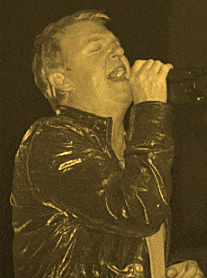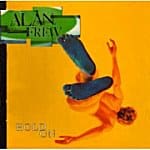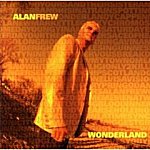 Even as far back as the beginning, Frew said it was just natural his songwriting would mature over the years in terms of tackling various social and political issues. It’s something in which he noted he probably has a different approach to writing. “I suppose growing up in a small part of Scotland, you see things one way and then you move to a new country,” he explained. After three multi-platinum albums, a changing musical landscape pushed Glass Tiger to hang it up in the early 90’s – something he said is just the nature of the beast. “A lot of what happens is there’s a lot of fads, fashions, and flash in the pans, and there’s always one single style, one look or genre that’s pushed aside for another. When Glass Tiger first came on the scene, you had to know that somebody – some artist or group suffered because of that because the industry says everyone has to be like Glass Tiger. Then it was someone else’s turn.” He said though that in hindsight, it was time to put Glass Tiger on the shelf for awhile and take a step back from it all when they did. “The whole thing had gotten a bit old by then. You can only get chased down the street by adolescent girls for so long. You grow up, but your audience doesn’t necessarily, and I think that wears thin for most musicians. I was really quite thankful when everybody grew up.” He spent his time doing different projects over the next few years including a pair of television programs called Road Stories and Alan Frew and Friends. In both, musical guests told stories and sang songs – projects he noted just that got offered to him. He confided that although he enjoyed the experiences immensely, the politics behind the scene left a bad taste in his mouth. “It was a lot of fun, but you get these people sitting in their offices thinking they know everything – more than you do. And sometimes decisions are made and things are done that you don’t necessarily agree with or even think are very smart.” He released his debut solo, HOLD ON, in ’96 – and although extremely proud of the fine musicianship and finely tuned product, he said he knew he was in for a rough time trying to push it. “The timing was right for me, but not necessarily for everything else that was going on at the time. You spend hundreds of hours crafting your songs – and the production was just stellar. But just as I was getting ready to release the album, Alanis Morrissette releases JAGGED LITTLE PILL, and suddenly the entire industry wants angry young chicks who want to start singing about wanting their boyfriends back, that sort of thing,” he said. Largely, the album went unnoticed, despite the videos for “So Blind”. “The whole industry shifts, and so the male contemporary vocalists at that time are told Au revoir. So I think a really fine piece of work fell by the wayside because of the industry. But that’s just what happens sometimes,” he said. Glass Tiger was reformed around ’99, and a wave of ‘best of’ packages started hitting the shelves – around the same approximate time as he was getting ready to plug his new album, WONDERLAND. “The only way for an artist like me with an already established record, or maybe a stigma, to break out a new record to the world is to just get out and play. That’s always been the way it is. There’s a built-in audience from the Glass Tiger days, so I’m going to take any opportunity I’m given to introduce my work – that means mixing some new stuff into the sets live.” In between Glass Tiger dates and philanthropical missions, Frew found time in 2008 to release a motivational book and DVD called The Action Sandwich, in which he says the key to success is being true to yourself, regardless of what you do. Glass Tiger still plays from coast to coast, and Frew said it’s a legacy of music he’s grown to appreciate a little more. “You look back, and we did some really great things. You’re on stage and playing “Someday” or “Don’t Forget Me,” and you see people singing along, having a good time. They’ve put their problems away for a couple of hours and are enjoying memories of when things were a little simpler. That’s a great feeling.”
|


